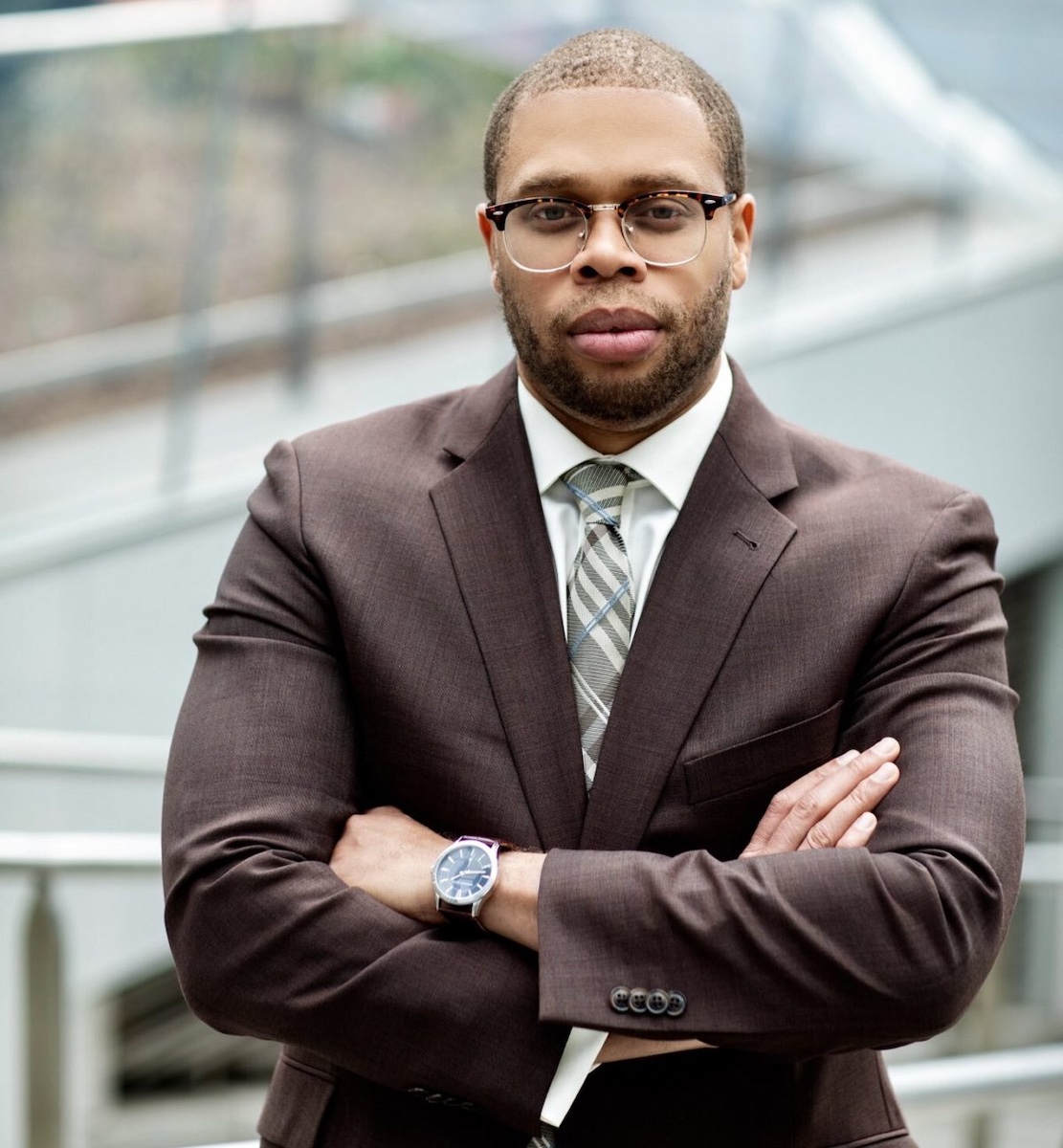
This editorial article is a part of Racial Equity in Tech Month of Technical.ly's editorial calendar. This month’s theme is underwritten by Verizon 5G. This story was independently reported and not reviewed by Verizon before publication.
It’s been a year since cities around the world hosted protests in the wake of George Floyd’s murder by Minneapolis police, eliciting plenty of corporate pledges to further racial justice efforts through funding or internal changes. Per a study by Creative Investment Research, $50 billion was promised by companies for diversity, racial justice or societal good. To date, only $250 million of that has been spent.
Attorney, Temple University professor and hip-hop artist Timothy Welbeck believes that companies still have far to go in making progress on their commitments to furthering racial equity. Following up on our summer 2020 conversation with him, Technical.ly spoke to Welbeck about hollow corporate responses to social activism, how employees can protect themselves against toxic work environments. This interview has been edited for length and clarity.
###
What have you noticed that has gone well since last summer’s social uprising? What productive changes have been made?
The things I believe have gone well is that we have had conversations about reimagining society. Things that were once fringe ideas have taken center stage. I’m thinking about abolishing police, or a countermeasure in a similar direction of defunding police. Other substantive reforms that were once seen as improbable are at least being discussed now.
For example, the abolish police movement has been around for at least four decades but people thought it was radical before. With the uprisings of the last year and reasons for them, we’ve seen people consider them more.
Many companies made public commitments to improve their diversity and inclusion practices. How much progress do you believe they’ve made a year later?
I would say we’re still scratching the surface. Last summer when we spoke, we noticed that some of the corporate response had seemed performative or reactionary.
The example we used last year [of a response that seemed genuine] was Ben & Jerry’s decision to make bold, unapologetic statements to their customers as a company about racism and police brutality. I think we’re seeing that currently as well in that we’re seeing companies that were making genuine strides in their hiring practices, listening to divergent voices in their offices.
But in a broader sense, it seems the reaction to last summer was performative.
I believe the needs are the same as they were last year, in that companies need to make more equitable hiring decisions, have more equitable practices internally when it comes to hiring decisions and internal dialogues when it comes to governing the company. We’re seeing organizations run by the same individuals going through the same hiring practices. As a result, little has changed in most industries in the time since last summer’s protests.
As a lawyer, has there been a decline in the cases you’ve handled involving discrimination and similar issues in the workplace?
I am still fielding a significant amount of complaints from clients and potential clients that have raised concerns about the corporate culture of their employers. From discrimination in hiring practices to the prevalence of microaggressions, many of these concerns have been raised directly by management in several instances and these complaints have been heard.
At one of the companies that has made comments about making a commitment to diversity, their corporate culture is stifling creativity and also creating a sense of unwelcomeness for the women and people of color that work there.
What can employees at companies with questionable diversity practices do to support themselves?
For those at liberty to seek out alternate employment, I would encourage those to do so. Generally speaking I would remind all employees that they have a legal right to work in an environment free of retaliation or discrimination.
It’s recommended that the employee documents incidents, communicate the grievances to their employer and go through those channels to remedy the problem. If it continues, you should seek legal counsel to find a solution. Many people are suffering in their workplace not knowing there is help for them. Documentation will be helpful later and is helpful for human resources representatives. Usually human resources is tasked with solving that internally, but you at least have the documentation for yourself [if needed further].
You don’t have to suffer in silence. I know everyone does not have the freedom to walk away from their job the moment they find something insufferable. Document all of these issues. The [U.S. Equal Employment Opportunity Commission] is charged with protecting workers explicitly against discrimination.
What do you believe advocates for racial equity expect more of from companies and local governments overall?
We should not allow these symbolic gestures to appease us. The true request in all of these uprisings was to treat us like people. We want to the police to stop killing us. We want to stop discrimination in other sectors of society. In Washington, D.C., it was a nice gesture to paint what is now Black Lives Matter Plaza. But in that same summer the city police brutalized protesters. Save the paint if you’re going to brutalize people.
Michael Butler is a 2020-2022 corps member for Report for America, an initiative of The Groundtruth Project that pairs young journalists with local newsrooms. This position is supported by the Lenfest Institute for Journalism.Join the conversation!
Find news, events, jobs and people who share your interests on Technical.ly's open community Slack

Philly daily roundup: Jason Bannon leaves Ben Franklin; $26M for narcolepsy treatment; Philly Tech Calendar turns one

Philly daily roundup: Closed hospital into tech hub; Pew State of the City; PHL Open for Business

A biotech hub is rising at Philadelphia’s shuttered Hahnemann Hospital campus


